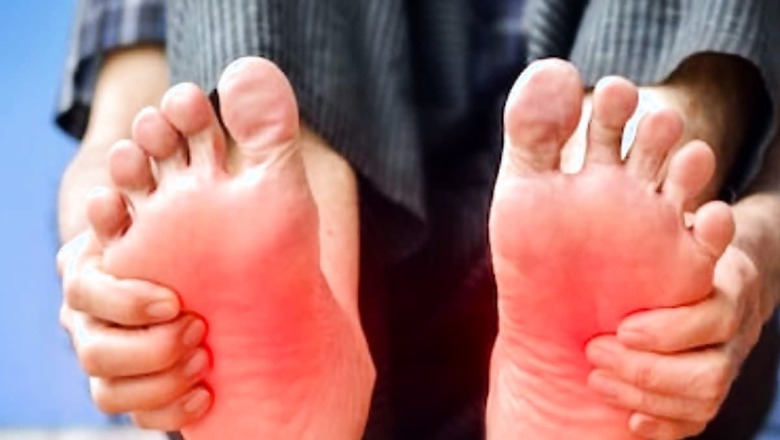
views
People who face pain and burning sensation in their feet may have suffered nerve damage in their legs, also called neuropathy. As per a report published in WebMD, some people might face this problem repeatedly due to ailments related to the digestive system. In this case, the affected people should consult a doctor. This space articulates the reasons for the problem of burning sensation in the feet.
1. Vitamin Deficiency- Deficiency of Vitamin B12 and B6 is one of the reasons why people may be affected by the problems of burning feet. People who fail to get sufficient nutritious intake in their bodies suffer a lack of Vitamin B12 and B6. This can lead to strain in the muscles, which can cause pain and a burning sensation in the soles.
2. Thyroid-related Problems- According to the Cleveland Clinic, Hypothyroidism is an underactive thyroid gland that may cause a burning sensation in your feet. This can be accompanied by other health ailments like weight gain, dry skin or fatigue.
3. High Blood Sugar Levels- Due to diabetes, the patients can also face numbness, tingling, pain, or weakness in their hands or feet. This is called diabetic neuropathy. These feelings of numbness often start in someone’s toes and feet, but can also begin in the fingers and hands. Some people may also have deep pain or aching or just a heavy feeling. Others may have very sweaty or very dry feet from nerve damage.
4. Pyelonephritis (Kidney Infection)- Pyelonephritis is an infection that can occur in one or both kidneys. The cause is a UTI (Urinary tract infection) that has spread in a person’s body. Pyelonephritis can lead to fever, nausea, a burning feeling when urinating, and flank pain and tenderness.
To heal the infection caused by Pyelonephritis and stop it from returning, it is common to get two or more weeks of antibiotics. After treatment, urine cultures are used to make sure the infection doesn’t return. A urine culture is a lab test to check for bacteria or other germs in a urine sample. If it does, two more weeks of medicine are offered and up to 6 weeks of medicine may be used in case it happens again.


















Comments
0 comment